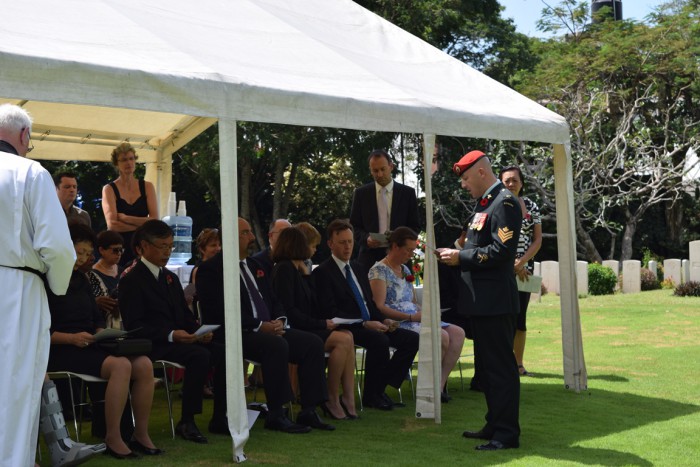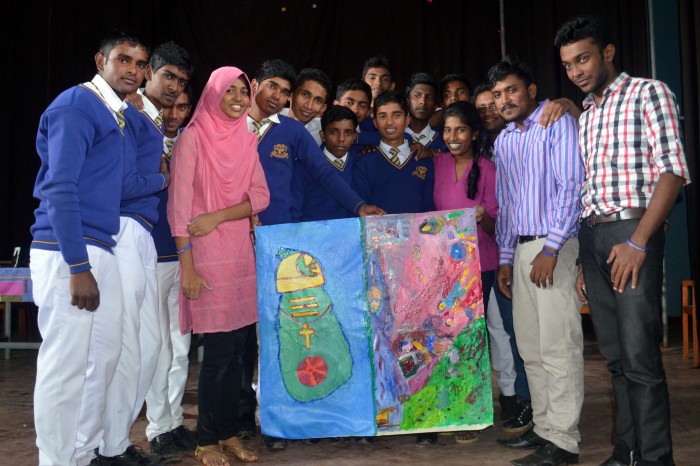13th November 2015 Colombo, Sri Lanka
Looking forward in remembrance
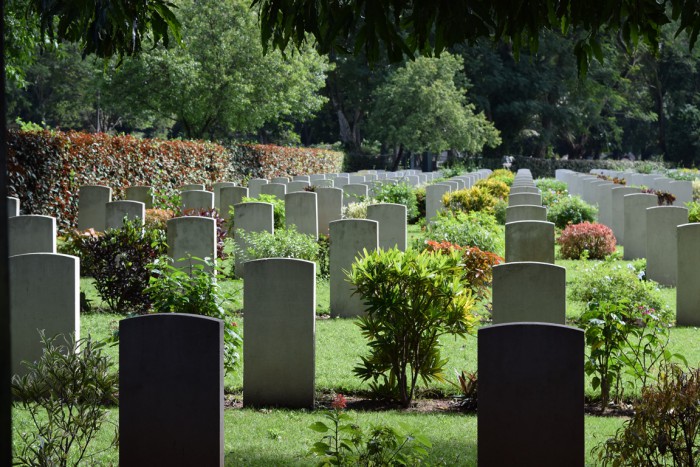
On 8 November, we gathered at the Liveramentu War Graves in the Torrington Road cemetery for the annual reflection on sacrifice and the horrors of war that is Remembrance Sunday. The Act of Remembrance was as moving as ever. Bright Sri Lankan sunshine reflected off the rows of white headstones. Veterans, children, diplomats and serving officers stood together in silence. Sri Lanka Army buglers sounded the Last Post and Reveille.
Christians, Hindus, Buddhists, Jews, Muslims, atheists: the soldiers buried in Liveramentu were so young, and so far from home. In Colombo, we always read the Kohima Epitaph during the service. Over 10,000 Indian, British and Japanese lives were lost in the 1944 battle at Kohima, the turning point of the Japanese offensive into Indian territory. The Epitaph, on a memorial in Nagaland in Northern India, encapsulates Remembrance Sunday. “When you go home, tell them of us and say, For your tomorrow, we gave our today.” In his prayer, the Reverend Campbell of St Andrew’s Scots Kirk spoke not only of loss, but of the role we all should play in making that today the best that it can be. He spoke of our responsibility – as individuals, societies and countries – for promoting reconciliation.
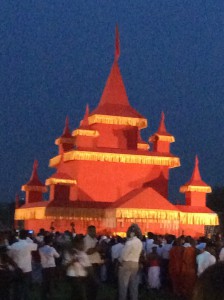 One man who demonstrated to the full how an individual can promote healing and tolerance across a whole society was of course the late Venerable Sobitha Thera. Paying my last respects to him at the Kotte Temple and attending his state funeral on Thursday, I was struck again by how he had used his position of religious authority to encourage social justice, democratisation and reconciliation. He was an immense force for good, and the President’s speech at his cremation made it clear that his influence will continue beyond the grave. Religious leaders have a crucial role to play in encouraging cross-communal tolerance, and in challenging hatred and bigotry, within their own ranks or beyond. This was symbolised by the local Mosques handing out water to those who came to Kotte to pay their respects.
One man who demonstrated to the full how an individual can promote healing and tolerance across a whole society was of course the late Venerable Sobitha Thera. Paying my last respects to him at the Kotte Temple and attending his state funeral on Thursday, I was struck again by how he had used his position of religious authority to encourage social justice, democratisation and reconciliation. He was an immense force for good, and the President’s speech at his cremation made it clear that his influence will continue beyond the grave. Religious leaders have a crucial role to play in encouraging cross-communal tolerance, and in challenging hatred and bigotry, within their own ranks or beyond. This was symbolised by the local Mosques handing out water to those who came to Kotte to pay their respects.
Grass-roots activities to bring communities together are also essential. The High Commission is a long-standing partner of Sri Lanka Unites, who bring young people from across Sri Lanka’s religious and ethnic communities together. We support their exchange programmes and schools outreach work, as well as reconciliation centres across the country. We are also funding special activities linked to the centenary of the First World War. Last year, this was a mixed nationality, gender, ethnicity and ability football tournament that brought over 60 Sri Lankan, Maldivian, German and British players together. This year, it’s focused on young people exploring conflict and reconciliation through art. The project brought groups of young people together in several locations across the country. Mixed ethnic groups then collaborated to create images and paintings that captured their experiences of building peace and their aspirations for the future.
I’ll give the last word to three of the young people who participated in the project. At the end of a week of reflection and loss, it is sentiments like these that demonstrate how ready many of the young people of Sri Lanka are to grasp a better future:
A young Muslim boy from the East coast commented “Sri Lankan Civil war cannot be compared with the First World War but the brutality was the same. 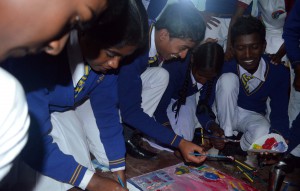 The civil war made us brutal to assume that all Tamils were tiger rebels. Thank God the war is over, I feel like a proper human being now to treat all human beings equally without negative stereotypes.”
The civil war made us brutal to assume that all Tamils were tiger rebels. Thank God the war is over, I feel like a proper human being now to treat all human beings equally without negative stereotypes.”
And a teenager in Kandy said: “As a Sinhalese I believe we have a responsibility to safeguard the cultural diversity of the country. Yes we had a brutal war and have not yet fully recovered. But that doesn’t mean that we cannot reconcile or attempt to have a sustainable solution for the issue. Unlike the First World War repercussions of igniting the Second World War, we need to make efforts not to provoke another brutal civil war.”
And lastly, a young Tamil girl from the North, added: “There are no winners nor losers in a war situation, there are only victims. We must promote trust and understanding to make Sri Lanka one big community that cultivates a feeling of a family. I truly believe in a better Sri Lanka.”
